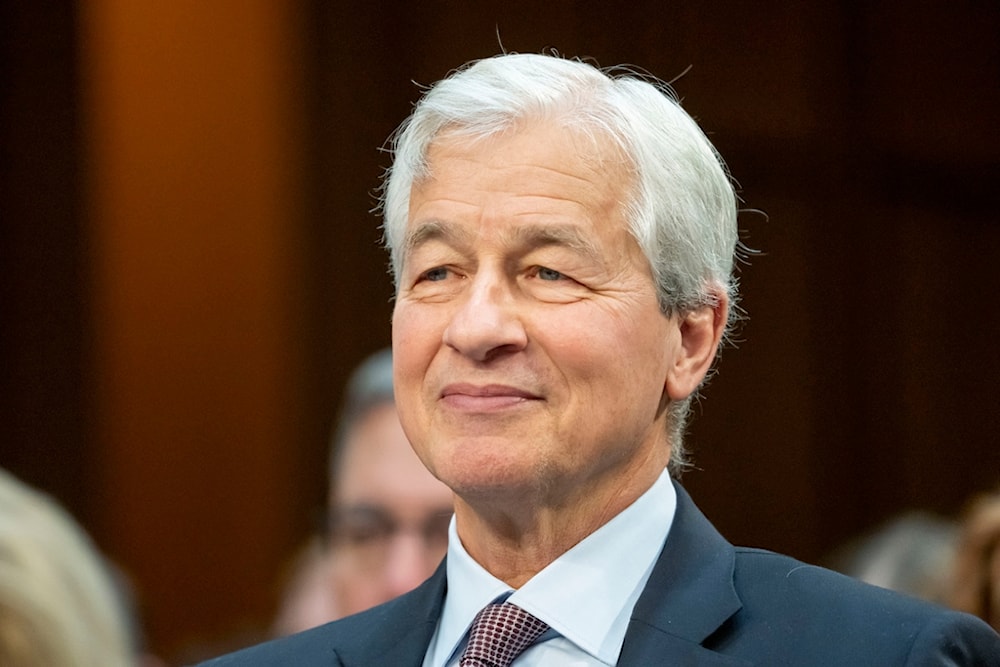JPMorgan CEO says US economy speeding toward a 'cliff' as debt rises
Jamie Dimon, the chairman and CEO of US Bank JPMorgan Chase, has predicted an economic recession as national debt keeps inflating.
-

Jamie Dimon, Chairman and CEO, JPMorgan Chase & Co., listens during a Senate Banking, Housing, and Urban Affairs Committee oversight hearing to examine Wall Street firms on Capitol Hill, Wednesday, December 6, 2023 in Washington. (AP)
Jamie Dimon, the chairman and CEO of US Bank JPMorgan Chase, has predicted an economic recession as the US economy bolts toward a "cliff". This comes as national debt keeps inflating, reaching a record high of $34 trillion.
"It is a cliff, we see the cliff. It's about 10 years out, we're going 60 miles an hour [towards it]," Dimon was quoted saying by Fox News on Saturday.
He also addressed the issue of having an extremely high debt-to-GDP ratio compared to 1982. Currently, the US debt-to-GDP ratio stands at 123%, according to the International Monetary Fund.
Previous calculations by Sputnik showed that US governmental debt increased by over 2 trillion dollars in just over a year, from the top of $30 trillion in January 2022, to $33 trillion in September 2023.
US debt could very possibly cost the government at least a third of its budget revenues.
US federal officials are still selling the illusion that the country's debt crisis is manageable. US Treasury Secretary Janet Yellen called the US national debt sum a "scary number," but claimed that it could be governed.
Read more: National debt; American CEOs' biggest business threat for 2024
Facets of a crumbling economy
This poses a problem that will spill over to other big economies relying on public borrowing to regulate inflation. Moreover, it leaves public services provided by the US government, such as Medicare and Social Security, in an unknown grey area as the government could be faced with choices to prioritize certain services over others.
The issue could also peak with the consideration of the debt ceiling plan proposed by US President Joe Biden. It essentially raises the debt ceiling till January 25 to avoid a complete breakdown of the economy, but there are no financial guarantees in a very dynamic economy.
Moreover, the Federal Reserve's signals of a potential interest rate cut have fueled growing pessimism about the dollar, driven by expectations of the Fed's response to the US economic slowdown.
The dollar's poor performance in 2023, its worst since the pandemic, has led many on Wall Street to anticipate a potential interest rate cut in 2024.
Given the slowdown in the US economy, anticipated changes in Fed policies have weakened the dollar compared to central banks with more favorable rates.

 3 Min Read
3 Min Read








